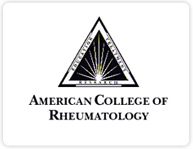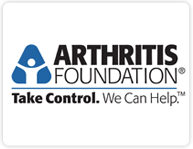Buyer's Guide To
Joint Supplements
What Everyone Needs to Know About Joint Health

Home I Traditional Treatments Vs Supplements
Like many people the question of traditional treatments vs. supplements still lingers. Many want to know which choice offers the most effective and safest solutions. We're here to tell you that both choices could be very much effective but safety does vary depending on the actual selection, ingredients and more. One solution however does hold up better over the other, it could possibly make your decision a whole lot easier.
which simply lessens the pain but does not address the root cause of arthritis Non-steroidal anti-inflammatory drugs (NSAIDs) such as Advil (ibuprofen), Aspirin (salicyclic acid), or nanaxopren which are effective in lessening the pain but have risks if taken for extended periods of time. Side effects include: heart attack, stroke, stomach ulcers, bleeding from the digestive tract, and kidney damage. Since 2005, the FDA has required NSAID manufacturers to include a warning label on their products that alerts users of an increased risk for heart attack, stroke, and gastrointestinal bleeding
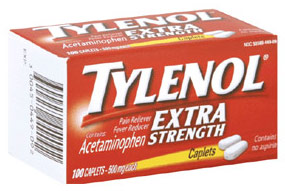
Injections with synthetic joint fluid replenish the joint with nutrients and allows the joint to heal. These include Synvisc-one (hylan G-F 20) and generic hyaluronic acid injections which have been shown to improve quality of life. Corticosteroids ("steroids") – Corticosteroids are medications that suppress the immune system and symptoms of inflammation. They are often injected into osteoarthritic joints. Steroids are used to treat autoimmune forms of arthritis but are avoided in infectious arthritis. Steroids have multiple side effects, including upset stomach and gastrointestinal bleeding, high blood pressure, thinning of bones, cataracts, and increased infections. The risks are most pronounced when steroids are taken for long periods of time or at high doses. Close supervision by a physician is essential because these drugs inhibit the immune system and make you more prone to infection.
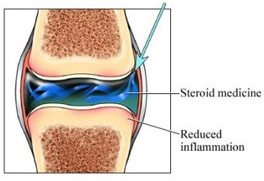
inhibitors — COX-2 ihibitors inhibit an inflammation-promoting enzyme called COX-2. This drugs were initially believed to work as well as traditional NSAIDs, but with fewer stomach problems. However, numerous reports of heart attacks and stroke have prompted the FDA to re-evaluate the risks and benefits of the COX-2s. Celecoxib (Celebrex) is still available, but labeled with strong warnings and a recommendation that it be prescribed at the lowest possible dose for the shortest duration possible.
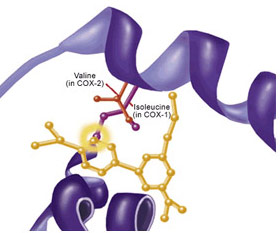
these have been used traditionally to treat rheumatoid arthritis and other autoimmune causes of arthritis. These drugs include gold salts, penicillamine, sulfasalazine, and hydroxychloroquine. More recently, methotrexate has been shown to slow the progression of rheumatoid arthritis and improve your quality of life. Methotrexate itself can be highly toxic and requires frequent blood tests for patients on the medication.
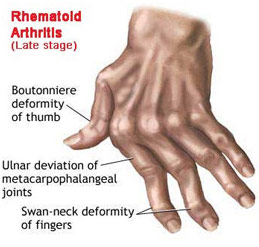
This class of drugs is specific to the treatment of rheumatoid arthritis. These sufferers have their own immune systems attack their joints. Immunomodulators work by weakening your own body's immune response. Unfortunately, weakening your immune system to fight an inflammation response leaves you prone to other infections. These medications should be a last line of defense and include etanercept (Enbrel), infliximab (Remicade), adalimumab (Humira), Orencia (abatacept), Rituxan (rituximab). There is a stronger class of immunomodulators called immunosuppressants which actively suppress your entire immune system. These drugs, like azathioprine or cyclophosphamide, are used for serious cases of rheumatoid arthritis when other medications have failed.

Are natural substances that are found in the joint fluid and they have abilities to trigger production of cartilage while reducing inflammation, and there are some recent studies to suggest they have potential to slow knee arthritis progression and relieve moderate and severe pain of Osteoarthritis. Possible side effects for Glucosamine have been reported as diarrhea, nausea, heartburn, constipation, headaches, drowsiness or high blood sugar (hyperglycemia) diabetes related. Chondroitin has similar side effects of Glucosamine but could include middle upper abdomen pain like acid reflux, swollen feet or ankles. All side effects are considered minor for the two.

Salves, Gels and even Creams are analgesics which could offer relief of mild joint pain in users. If the user is taking oral painkillers he/she would still be safe using topical pain relievers for problems like the hands and feet. Rub in treatments are also favored by those who either cannot or don't like taking oral painkillers in the form of pills etc.

There are a rising number of effective juices and joint health supplements on the market right now. Many people use juices mixed with oral supplements, they just open the capsule and mix them in or there are some supplements designed specifically for mixing with juices and some come premixed in bottles though we question what prolonged contact with the high ph's of the juice has done to the active ingredients (just think how long those drinks where sitting in a warehouse somewhere). These depending on what supplement you mixed in these mixed juice drinks are just as effective as pills and let you get your Chondroitin and Glucosamine, Turmeric Extract, Boswellia Serrata, MSM, Hyaluronic Acid and more in a conveinent non-pill form. The juices are also highly effective for providing energy.
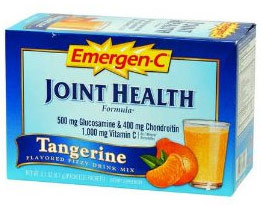
Supplements in comparison with traditional treatments come out on top. They're considered much healthier because many are based on and use natural ingredients rather than chemicals that have been known to present possibilities of long-term use damage. Yes, supplements are much safer in terms of side effects. As you can see the side effects for two of the most beneficial joint health supplement ingredients Chondroitin and Glucosamine are very minor. The joint health supplements also tend to be more on the affordability side and often do not require a doctor's consultation to begin or discontinue use. Joint and dietary supplements are also classified by the U.S. Food and Drug Administration as being one of the subcategories of food. That provides manufacturers of supplements with less oversight and more leeway than the products in the pharmaceutical category.
Traditional Treatments
Pain killers like Tylenol (acetomenophen)
which simply lessens the pain but does not address the root cause of arthritis Non-steroidal anti-inflammatory drugs (NSAIDs) such as Advil (ibuprofen), Aspirin (salicyclic acid), or nanaxopren which are effective in lessening the pain but have risks if taken for extended periods of time. Side effects include: heart attack, stroke, stomach ulcers, bleeding from the digestive tract, and kidney damage. Since 2005, the FDA has required NSAID manufacturers to include a warning label on their products that alerts users of an increased risk for heart attack, stroke, and gastrointestinal bleeding
Other treatments include:

Synthetic joint fluid -
Injections with synthetic joint fluid replenish the joint with nutrients and allows the joint to heal. These include Synvisc-one (hylan G-F 20) and generic hyaluronic acid injections which have been shown to improve quality of life. Corticosteroids ("steroids") – Corticosteroids are medications that suppress the immune system and symptoms of inflammation. They are often injected into osteoarthritic joints. Steroids are used to treat autoimmune forms of arthritis but are avoided in infectious arthritis. Steroids have multiple side effects, including upset stomach and gastrointestinal bleeding, high blood pressure, thinning of bones, cataracts, and increased infections. The risks are most pronounced when steroids are taken for long periods of time or at high doses. Close supervision by a physician is essential because these drugs inhibit the immune system and make you more prone to infection.

Cyclooxygenase-2 (COX-2)
inhibitors — COX-2 ihibitors inhibit an inflammation-promoting enzyme called COX-2. This drugs were initially believed to work as well as traditional NSAIDs, but with fewer stomach problems. However, numerous reports of heart attacks and stroke have prompted the FDA to re-evaluate the risks and benefits of the COX-2s. Celecoxib (Celebrex) is still available, but labeled with strong warnings and a recommendation that it be prescribed at the lowest possible dose for the shortest duration possible.

Disease-modifying anti-rheumatic drugs —
these have been used traditionally to treat rheumatoid arthritis and other autoimmune causes of arthritis. These drugs include gold salts, penicillamine, sulfasalazine, and hydroxychloroquine. More recently, methotrexate has been shown to slow the progression of rheumatoid arthritis and improve your quality of life. Methotrexate itself can be highly toxic and requires frequent blood tests for patients on the medication.

Immunomodulators –
This class of drugs is specific to the treatment of rheumatoid arthritis. These sufferers have their own immune systems attack their joints. Immunomodulators work by weakening your own body's immune response. Unfortunately, weakening your immune system to fight an inflammation response leaves you prone to other infections. These medications should be a last line of defense and include etanercept (Enbrel), infliximab (Remicade), adalimumab (Humira), Orencia (abatacept), Rituxan (rituximab). There is a stronger class of immunomodulators called immunosuppressants which actively suppress your entire immune system. These drugs, like azathioprine or cyclophosphamide, are used for serious cases of rheumatoid arthritis when other medications have failed.

Natural Supplements
Glucosamine and Chondroitin Supplements –
Are natural substances that are found in the joint fluid and they have abilities to trigger production of cartilage while reducing inflammation, and there are some recent studies to suggest they have potential to slow knee arthritis progression and relieve moderate and severe pain of Osteoarthritis. Possible side effects for Glucosamine have been reported as diarrhea, nausea, heartburn, constipation, headaches, drowsiness or high blood sugar (hyperglycemia) diabetes related. Chondroitin has similar side effects of Glucosamine but could include middle upper abdomen pain like acid reflux, swollen feet or ankles. All side effects are considered minor for the two.
Other treatments include:

Topical Pain Relievers –
Salves, Gels and even Creams are analgesics which could offer relief of mild joint pain in users. If the user is taking oral painkillers he/she would still be safe using topical pain relievers for problems like the hands and feet. Rub in treatments are also favored by those who either cannot or don't like taking oral painkillers in the form of pills etc.

Juices and Joint Health Supplements —
There are a rising number of effective juices and joint health supplements on the market right now. Many people use juices mixed with oral supplements, they just open the capsule and mix them in or there are some supplements designed specifically for mixing with juices and some come premixed in bottles though we question what prolonged contact with the high ph's of the juice has done to the active ingredients (just think how long those drinks where sitting in a warehouse somewhere). These depending on what supplement you mixed in these mixed juice drinks are just as effective as pills and let you get your Chondroitin and Glucosamine, Turmeric Extract, Boswellia Serrata, MSM, Hyaluronic Acid and more in a conveinent non-pill form. The juices are also highly effective for providing energy.

Traditional Treatment/Supplement Comparison
Supplements in comparison with traditional treatments come out on top. They're considered much healthier because many are based on and use natural ingredients rather than chemicals that have been known to present possibilities of long-term use damage. Yes, supplements are much safer in terms of side effects. As you can see the side effects for two of the most beneficial joint health supplement ingredients Chondroitin and Glucosamine are very minor. The joint health supplements also tend to be more on the affordability side and often do not require a doctor's consultation to begin or discontinue use. Joint and dietary supplements are also classified by the U.S. Food and Drug Administration as being one of the subcategories of food. That provides manufacturers of supplements with less oversight and more leeway than the products in the pharmaceutical category.
Product Reviews:
Advanced Joint Support Review
Animal Flex
Arthro Joint and Muscle Relief
Arthri Flex Advantage
Bone Builder
Bio Glucosamine
Bone D
Bone Defense
Bone-Up
Boswellia
Cellaplex
Celadrin
Cosamin
Cosamin DS
CVS Glucosamine
Doctor's Best MSM
Emergen C Joint Health
Flex-a-Min
Flex Now
Flexcin CM8
Flexcerin
Glucosamine HCL Review
Glucosamine Hyaluronic
Hydra Plenish
Hyaluronic Acid
Hyaluronic Complex
Iceland Health
i-Flex
Inflamma Less
Joint Fuel
Joint Juice
Joint Synergy
Joint Builder
Joint Vibrance
Liquid Calcium
Ligavar Ultra
Mendamine
Move Free Advanced
Natural Factors Tumeric and Bromelain
Neo Flex
Now Glucosamin
Now Food Tumeric and Bromelain
Osteo Bi-Flex
Oxycollasyn
Rapid Flex Pain Reliever
Repair
Schiff Move Free Advanced
Schiff Mega Red Joint Care
Schiff Mega Red E.S. With Krill Oil
Schiff Glucosamine and MSM
Sea Mussel 500
Soma Flex
Super Flex
Super Cissus
Superior Flex
Supple Drink
Treedo Combi Plus
Trigosamine
Trigosamine Fast Acting
Triple Flex
Tuermeric & Bromelain
Ultra RX Joint Cream
Utrition
Wobenzym
Yogi Joint Comfort Tea
Zyflamend
FDA Disclaimer: The statements and products shown on this website have not been evaluated by the US Food and Drug Administration. These products are not intended to prevent, treat or cure any disease
Disclaimer: The information provided on Jointpillinsider.com is for educational purposes only and is not intended as a substitute for professional medical advice, diagnosis, or treatment. Always seek professional medical advice from your physician or other qualified healthcare provider with any questions you may have regarding a medical condition. Certain areas of the JointPillInsider.com web site contain information supplied by visitors and others. Jointpillinsider.com is not responsible for comments, advice, information, or any other posting made by visitors or others in these areas. Jointpillinsider.com reserves the right to review materials posted in any public areas and to delete or edit them, for any reason, at any time.
Disclaimer: The information provided on Jointpillinsider.com is for educational purposes only and is not intended as a substitute for professional medical advice, diagnosis, or treatment. Always seek professional medical advice from your physician or other qualified healthcare provider with any questions you may have regarding a medical condition. Certain areas of the JointPillInsider.com web site contain information supplied by visitors and others. Jointpillinsider.com is not responsible for comments, advice, information, or any other posting made by visitors or others in these areas. Jointpillinsider.com reserves the right to review materials posted in any public areas and to delete or edit them, for any reason, at any time.
BUYER'S GUIDE TO JOINT SUPPLEMENTS





